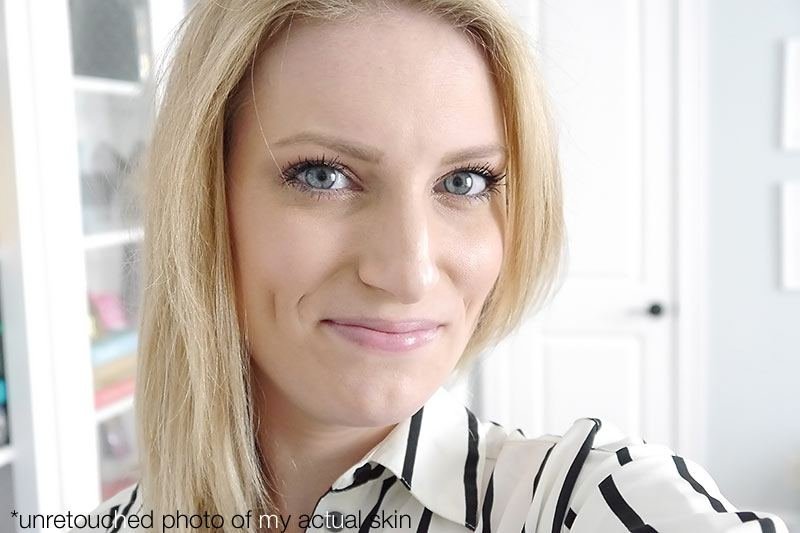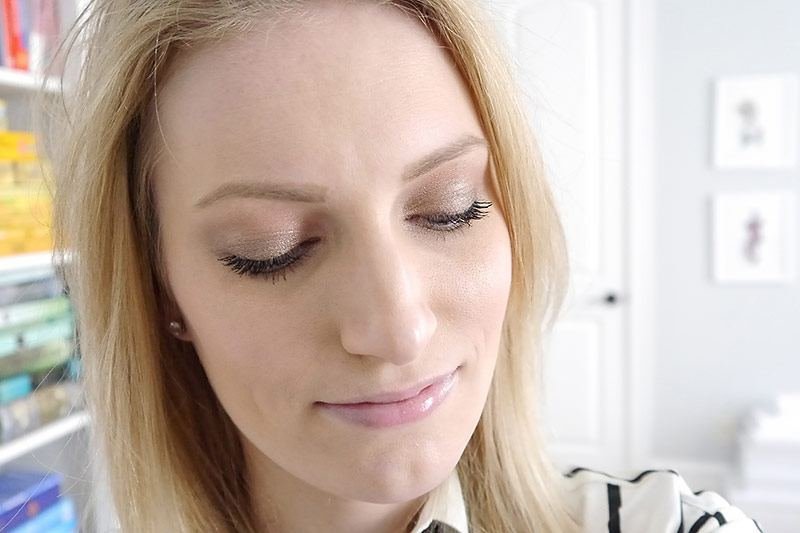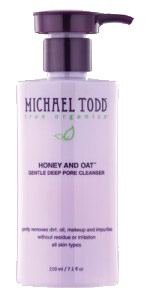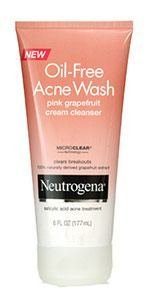Skin That's Clear for the Holidays

 As the holiday season approaches, the number of photos taken of us increases proportionately. This can be at once inspiring, and anxiety-provoking. On the one hand, we’re making and preserving memories. On the other, we’re constantly focused on the S.O.S: State of Our Skin. In this post, I've outlined some tips I recommend to keep your skin in the clear—this season and all year round.
As the holiday season approaches, the number of photos taken of us increases proportionately. This can be at once inspiring, and anxiety-provoking. On the one hand, we’re making and preserving memories. On the other, we’re constantly focused on the S.O.S: State of Our Skin. In this post, I've outlined some tips I recommend to keep your skin in the clear—this season and all year round.
Clean, But Don't Over-Clean
It’s counterintuitive, but most people I know either don’t clean their faces enough, or they're cleaning it way too often (or too harshly). Contrary to popular belief, acneic skin isn’t hardy and tough; in fact, it’s quite sensitive and one of the reasons why it tends to overreact to most environmental and internal insults. It sounds counterintuitive, but I choose a gentle cleanser without active ingredients, for the morning, when my skin is its most calm. Then I save the cleanser with acne-fighting ingredients for use before I go to sleep. I typically look for an ingredient–such as salicylic acid–which exfoliates the skin to prevent clogged pores that can lead to blemishes. Cleansers containing benzoyl peroxide can be helpful, however I personally don't like them in my cleanser because it bleaches the towel I use to dry my face. I usually just save the benzoyl peroxide for a treatment product.
Wash your face twice a day–you are allowed extra washes if your face gets visibly dirty (playing in the mud, mm?), or if you are post-workout. Again, extra washes should be with a gentle cleanser.
Here are some of my tried-and-tested, absolute favorite cleansers:
What Causes It: Bacteria
Pores are like a motel vacancy sign to bacteria (the most common being Propionibacterium acnes, or P. acnes).Bacteria cause inflammation and pimples. 4 The pimple is actually your body trying to rid itself of the acne: it tries to kill it with white blood cells, the body’s immune system.5 This is pus (gross, I know, but you should know that pus = white blood cells, not pus = bacteria).6 The bacteria are invisible to you. None of this would happen if your pore was never clogged in the first place. Does that make sense?
Choose a Topical Regimen and Stick With It
No matter what route you choose (3-step systems at the department store, drug store products, or even prescription products from your dermatologist); I really believe that you must stick with it. Remember, your skin could fall right back off the wagon if you aren't careful. Don't quit just because you’re ahead - that’s the most common mistake I've seen my fellow acne sufferers make (myself included, on countless occasions). It’s easy to get confident and think you have “cured” your skin of acne, but that hasn't been the case with me.
Did you know? P. acnes has never shown resistance to benzoyl peroxide. Antibiotic resistant strains of P. acnes have emerged over the years, but old reliable benzoyl peroxide has proven to be effective, when applied properly.
If you have already tried OTC (over the counter) products and they haven’t worked for you, the next step is to see a dermatologist or your regular doctor.
The Good Stuff
I’ve talked about Epiduo® (adapalene and benzoyl peroxide) Gel 0.1%/2.5% before and it’s still one of my favorite choices because it contains a pore-unclogging medication (adapalene, a type of retinoid)7D as well as antimicrobial benzoyl peroxide in one step. In one step. Can you see now why I like it? As always, remember that Epiduo is a prescription acne treatment, which you can get from your regular doctor or dermatologist.
I could write about a lot of things, but there is such a grey area when it comes to fighting acne from beyond the drugstore. It makes me sad to see so many people throw their money away on this system or that system – when what they really need is to make an appointment with a dermatologist or their regular doctor. It can save a lot of money in the long run, with far more effective results, in my opinion. Save on your Epiduo prescription with a rebate here.
As always, nothing I say here should be taken as medical advice (again, please see your dermatologist or regular doctor).
I like Epiduo® Gel, and if you think you need that next step, I recommend you make an appointment with your dermatologist or regular doctor at their next check-up – don't wait until the problem gets out of hand. You can use AAD’s Dermfinder to look for one. You want clearer skin for the holidays, don't you?
Important Safety Information for Epiduo® Gel:
Indication: EPIDUO Gel is indicated for the topical treatment of acne vulgaris in patients 9 years of age and older. Adverse Events: In controlled clinical studies, the most commonly reported adverse events (≥1%) in patients treated with EPIDUO Gel were dry skin, contact dermatitis, application site burning, application site irritation and skin irritation. Warnings/Precautions: Patients taking EPIDUO Gel should avoid exposure to sunlight and sunlamps and wear sunscreen when sun exposure cannot be avoided. Erythema, scaling, dryness, stinging/ burning, irritant and allergic contact dermatitis may occur with use of EPIDUO Gel and may necessitate discontinuation.
You are encouraged to report negative side effects of prescription drugs to the FDA. Visit www.fda.gov/medwatch or call 1–800-FDA-1088.
______________________
Disclosure: This post has been sponsored by Galderma Laboratories, L.P., the makers of EpiduoGel. I would never write about, or endorse, a product that I did not thoroughly research and subsequently approve of whole-heartedly. EpiduoGel is a product I personally and professionally stand behind 100%.




